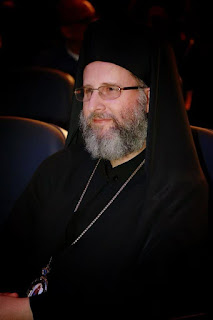 |
| Saint John the Baptist. Constantinople, Turkey, circa 1300. |
Throughout the ages at
various times in their lives people in every generation have asked the
questions: "What
is the purpose of life? What is the point of life?".
Ancient, primitive
people, obeying animal instincts, decided that the purpose of life is to
multiply, to reproduce, to have as many offspring as possible, simply in order
to ensure the survival of the race.
We can see this near the
beginning of the Old Testament when Abraham was told “to go forth and multiply”.
Gradually, however, as revelation came upon revelation to the chosen people of
God in the Old Testament, this command was refined. It was revealed that people
were to multiply for a reason other than survival. Barrenness was a stigma, not
only because through it men and women failed to ensure survival, but also
because it was revealed that somewhere one woman was called to give birth to
the Messiah. The Messiah meant the Savior. Thus children were born to various
devout and often aged couples, to Adam and Eve, to Abraham and Sarah, to Jacob
and Rachel. Thus sons like Abel and Joseph or Joshua and Samuel and many others
all in some sense prefigured the Messiah.






